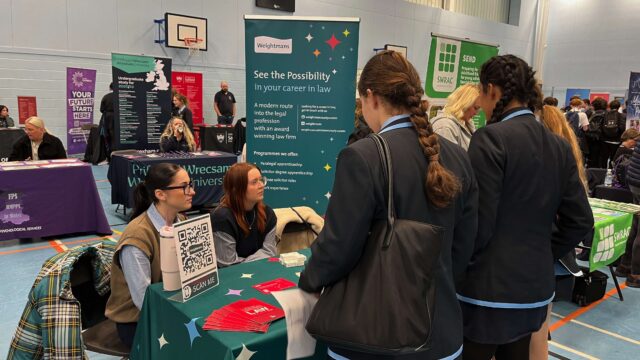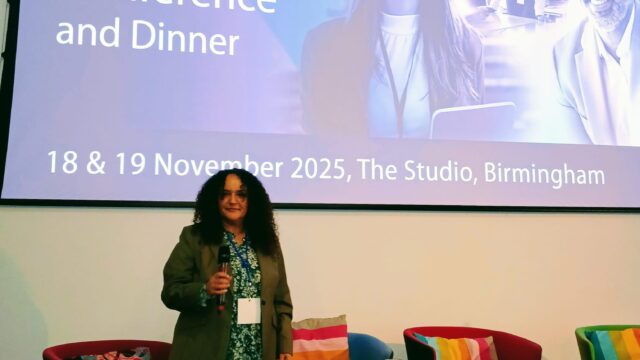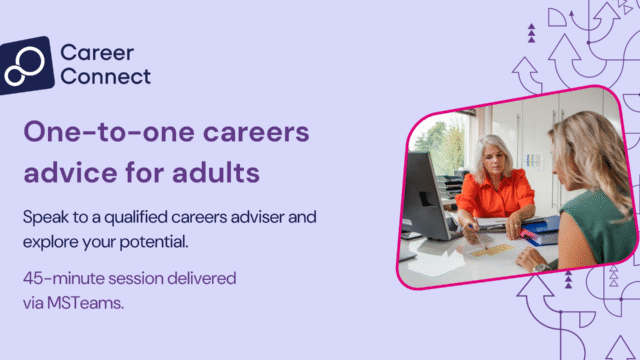Career Connect study highlights high likelihood of ADHD among NEET young people
Of the 100 young people that took part in a recent pilot study by the charity, 88 were found to either have an existing ADHD diagnosis or were identified by a screening tool as ADHD being highly likely or possible. All participants were aged 16-24 and not in employment, education or training (NEET).
Careers Adviser Jenny Booth led the pilot, where young people receiving careers support from the charity were given the option to use a validated ADHD screening tool.
Jenny’s study is part of Career Connect’s Practitioner Research Programme and was inspired by her own personal and professional experiences of ADHD.
The Research
The research used a validated screening tool to identify the number and proportion of young people (aged 16-24) using one of Career Connect’s local careers guidance services in the Northwest, that screened positive for possible and probable ADHD.
The screening tool that Jenny used is from the charity ADHD Liberty, adapted from a tool used by Psych Central. ADHD Liberty have used the screening tool in their own research into the likelihood of undiagnosed ADHD amongst the adult prison population and advised Jenny on its use in her study.
The screening tool does not provide a clinical diagnosis but is a useful tool to indicate likelihood of an ADHD condition.
The screening tool consists of 18 questions scored 0-3. A further set of questions relating to service experience and preferences were asked to 15 young people who screened as being highly likely to have ADHD.
Results
The pilot found a high prevalence of ADHD traits, both diagnosed and undiagnosed among young people that are NEET and using one of Career Connect’s local careers guidance services in the Northwest
Almost half of young people in the pilot (46/100) had a previous ADHD diagnosis.
- Of the remainder, 23/52 (44%) screened as being ‘highly likely’ to have an ADHD condition.
- 9/52 (36.6%) screened as ADHD being a ‘possible’ condition.
- Only 10 (19%) screened as ADHD as being ‘unlikely’.
This is far higher prevalence than previous community level estimates (between 5%-10%) for young people.
Girls are substantially more likely than boys to screen for a high likelihood of ADHD and be undiagnosed. Among girls without an existing ADHD diagnosis, 60% screened as ‘highly likely’ to have an ADHD condition. This compares with 32.2% of boys without an existing diagnosis.
What next?
Career Connect will take a number of actions on the basis of this research.
In the immediate term, Career Connect commits to:
- Widening the option of ADHD screening to other services across the charity.
- Raising awareness across our teams of how ADHD can impact on young people and affect their engagement with our services.
- Building our skills and approaches to better support neurodivergent young people and adults in their journey to employment, education and training.
Jenny said:
“ADHD is within my family, and I had started doing my own reading and research around the subject.
“As I started to learn more, I quickly realised that there are a lot of preconceptions about what ADHD looks like, and how it impacts on young people’s lives.
“In my day-to-day role, I also work with a number of young people who do have an ADHD diagnosis. As I learned more about ADHD, I started to recognise what I thought could be ADHD traits in some of the young people I was working with, but who haven’t been diagnosed as having ADHD.
“Wider research tells us that if you have been diagnosed with ADHD as a child or in adolescence, there is an increased risk of not being in education, employment or training as an adult. That should not be the case.”
Gary Mundy, Director of Impact and Research at Career Connect said:
“This research project, identified and carried out by Jenny, a member of our frontline staff, has the potential to make a significant difference to young people with diagnosed or suspected ADHD. The insights we have gained will inform and shape how we deliver our services.
“By extending opportunities for screening, we hope to help more young people understand ADHD better, and what up to now may have been a barrier to them achieving their goals.
“While not a clinical diagnosis, having the knowledge that ADHD could be possible or likely, enables young people to take positive action and hopefully achieve improved education, employment and training outcomes – while we can ensure that our services meet their needs.
“At Career Connect, we encourage and assist our practitioners to design and deliver research that produces evidence to support new approaches and practice, and we hope that this research will make a difference.”
If you want to find out more about this research project, you can read the more detailed version here.



